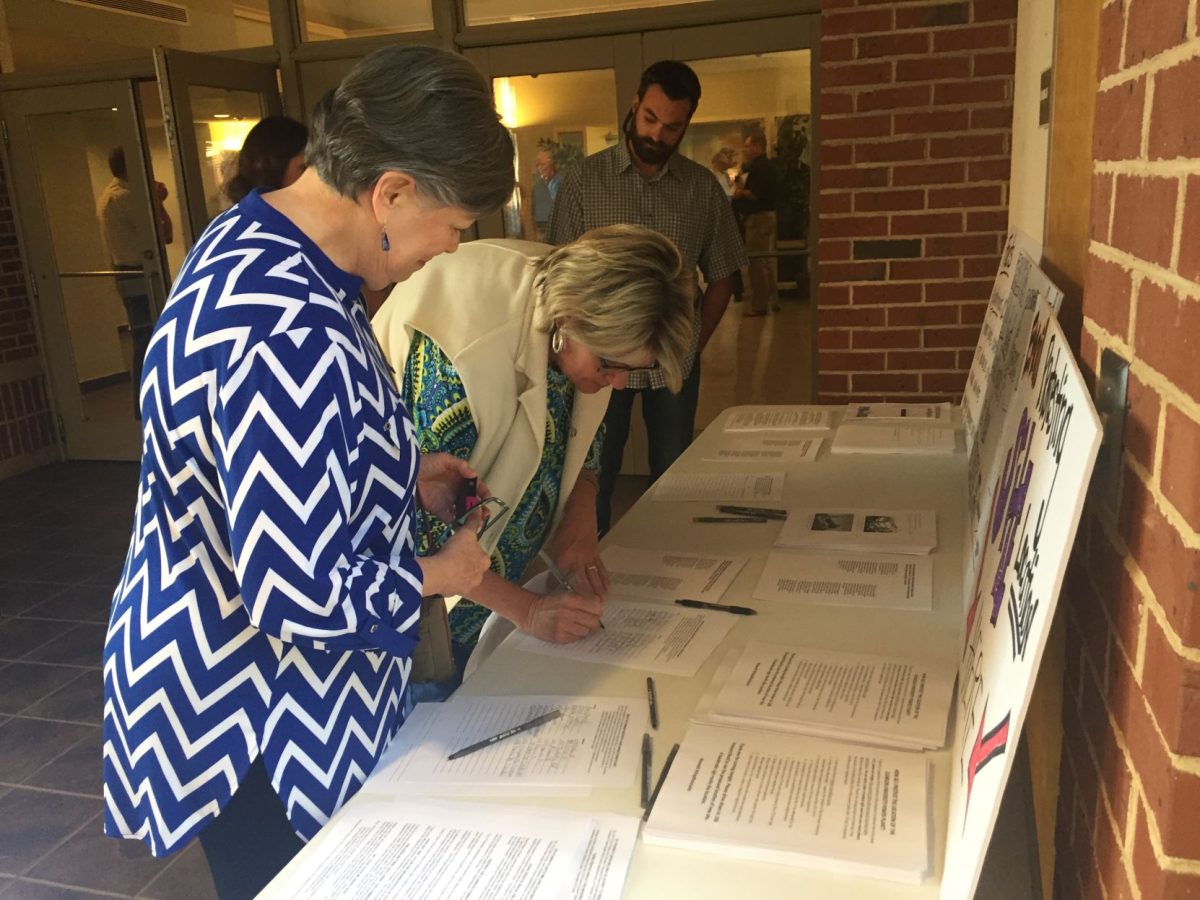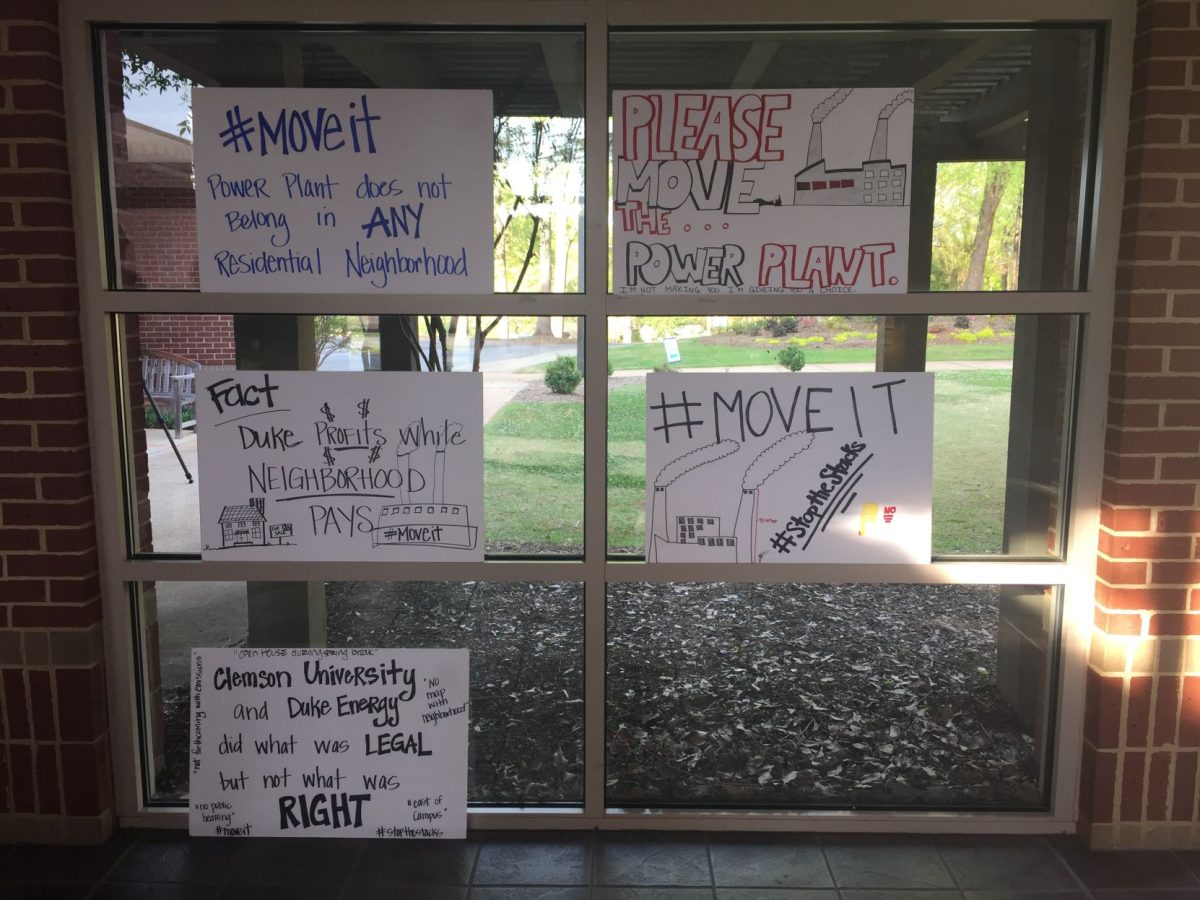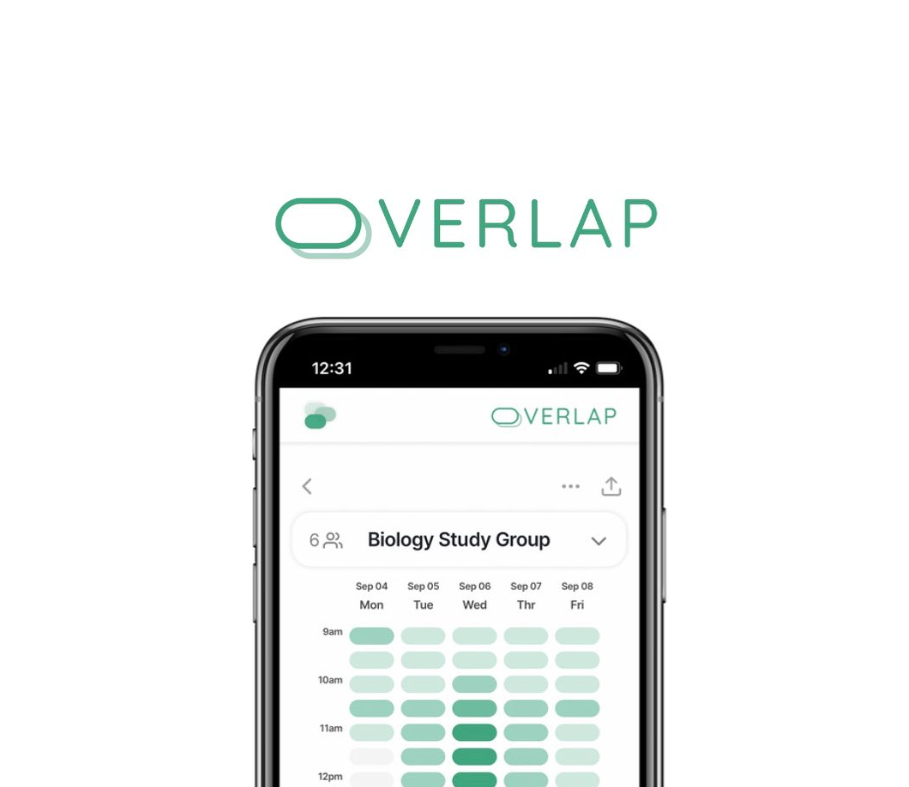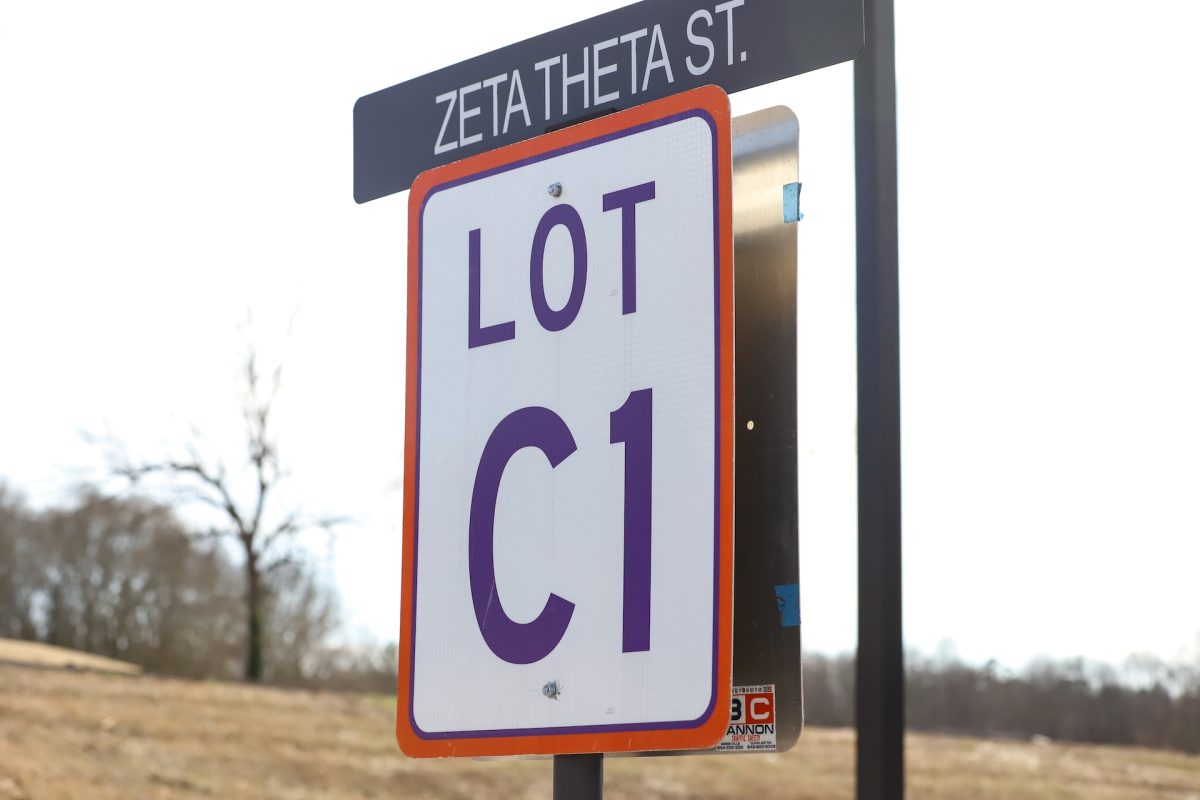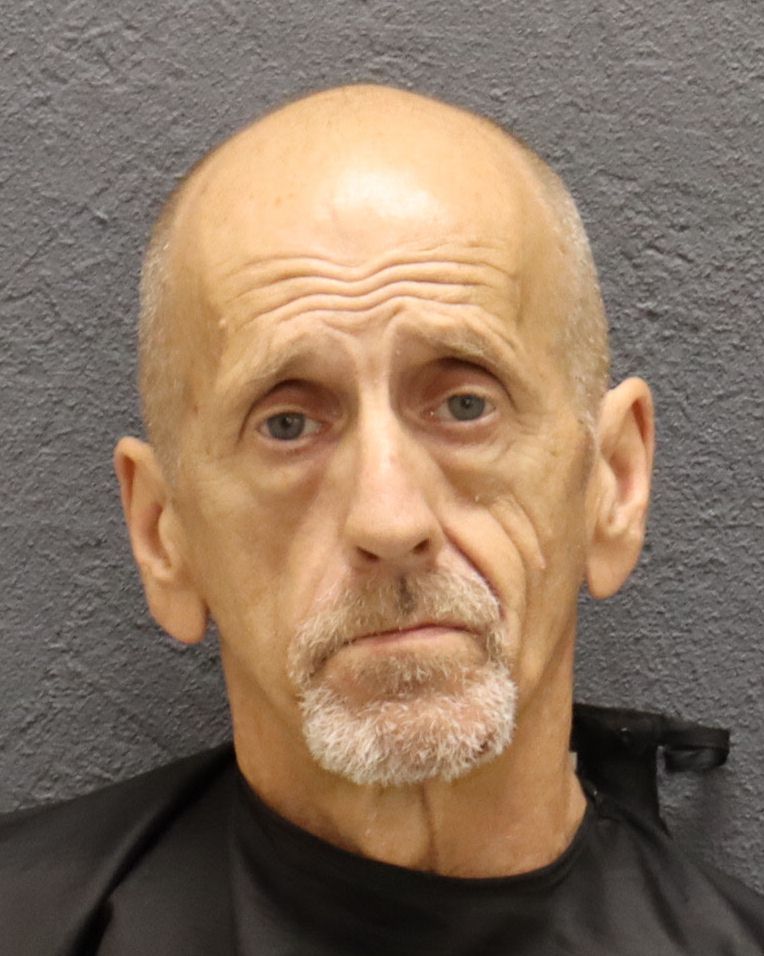More than 300 people gathered at Clemson Presbyterian Church on Monday night for an open house about Duke Energy’s plans to build a CHP (combined heat and power) plant on the eastern edge of Clemson University’s campus.
The drop-in event, co-sponsored by Duke Energy and Clemson University, offered local residents the opportunity to meet with officials and discuss their concerns.
Midway through, Rep. Gary Clary and Sen. Thomas Alexander, whose respective districts both include Clemson, addressed the crowd.
Clary told the crowd that he and Sen. Alexander met with Clemson University President Jim Clements earlier that afternoon and that they had “expressed displeasure in being kept in the dark for so long, because we knew very little about this project.”
“President Clements has admitted that they fumbled, they dropped the ball and [tomorrow] morning, there’s going to be a complete reevaluation of this project,” Clary said as the crowd erupted with cheers and applause. “He has pledged inclusivity and transparency within this project … The project will not change; the question is going to be where it is located.”
Sen. Alexander added, “President [Clements] is very open to making sure that process will begin tomorrow … You’ll see more communication, not only from Clemson University, but from Duke Energy as well. We’ll be working until we find a solution that’s best for all involved.”
In a statement, vice president of University Relations Mark Land said, “Clemson values its relationship with the city of Clemson and strives to be a good neighbor. After listening to the concerns of residents regarding the planned site for the power facility, the university has decided to re-evaluate its options for the locating the facility. The university, working with its partners at Duke Energy, will keep the community informed as it goes through this evaluation process.”
Residents seemed happy to hear that the university plans to reevaluate the plans for the power plant.
“I hope that now it’s out in the open they [will] come to their senses and say ‘we don’t want to put this in a community,’” said resident Ron Hughes, who lives on Roslyn Drive. “There’s [other] places they can put it on campus. I was very happy to hear that they were going to reevaluate it.”
Hughes told The Tiger that his initial concern about the plant had to do with the noise it could generate. His son, who is 27-years-old, has autism and is extremely sensitive to noise. Hughes said he and his family were considering moving as a result.
“We’ve lived here 22 years,” Hughes said. “If we move, it would be extremely difficult. Change is so hard for [those with autism].”
Hughes said he plans to continue to monitor the project and the university’s reevaluation.
“Not only do we not want it here, we don’t want it in another neighborhood in Clemson. It’s not just my backyard, it’s all of our backyards,” he said.
Resident Tanya Hyatt, one of the key figures who worked to spread the word about the plant, said she was shocked to hear that the university was planning to reevaluate plans for the power plant.
“In that moment, I realized that the residents of Clemson have a voice. I was excited, thrilled and honestly in shock because I didn’t expect anyone to talk,” she said. “I know that Duke [Energy] wanted this to be an informative session. [They hadn’t] planned for this to be … a discussion, so for [the representative and senator] to speak, that was already a victory.”
Hyatt said that she and other residents plan to attend city council and board of trustees meetings so that they could continue to make their voices heard.
“I’m not a political person, so the last thing I want to do is show up at board of trustees or city council meeting. But in order for my voice to be heard, I feel like I have to,” she said.
Hyatt also thanked Rep. Clary, who found out about the power plant last Tuesday when he received emails from Hyatt and several other constituents.
“[I knew that something was] amiss,” Clary told The Tiger. Clary said he reached out to his governmental affairs contact at Clemson, who filled him in on the project. He then reached out to residents and university officials.
“I’ve been working on this non-stop [since I got back to Columbia],” he said. Clary met with Duke Energy’s S.C. President Kodwe Ghartey-Tagoe on Monday morning and has visited the plant’s proposed site several times.
Resident Curtis Arnold praised Rep. Clary for his help.
“He’s really spent a lot of time with us. He came out over the weekend and spent Saturday afternoon [here],” Arnold said. “We’re very appreciative that he’s taken the time to do that for the citizens and the neighborhood, as well as the entire city of Clemson.”
Arnold said while he is pleased that the university plans to reevaluate the project, he wants to see Duke Energy and the university withdraw their application from the S.C. Public Service Commission (PSC).
“We need to stay vigilant and understand where it’s going with the filing,” he said. “… It’s not over yet.”
Duke Energy filed its application with the PSC on Feb. 21 asking the commission to approve its steam contract with the university without notice or a hearing.
Duke Energy spokesman Ryan Mosier said that “it is too soon to tell what impact this re-evaluation will have on the proposed construction and regulatory timelines.”
Back in March, the commission voted unanimously to deny Duke Energy’s request for waiver of notice and hold in abeyance, or temporarily put on hold, its request for approval without hearing, giving anyone who opposes the project until April 17 to write the commission and voice his/her opinion.
As of 11 a.m. Tuesday, 86 people have written the commission and voiced their concerns.
Rep. Clary said he plans to be involved in the reevaluation process and that he will be monitoring the Public Service Commission.
“The comment period [to voice your opinion on the project] ends next Monday, so I’m going to talk to Clemson and Duke tomorrow because they either need to suspend or withdraw that permit at this point in time until Clemson reevaluates this,” he said.
If Duke does not withdraw the application, the commission will determine whether or not to hold a public hearing once the comment period closes on April 17.
As for whether or not he would attend the public hearing if it were held, Clary said, “No question about it. I’ll be there, and I’ll speak against the project.”
Signs protesting the power plant on display in the windows at Clemson Presbyterian Church, where the open house was held.


